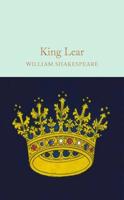Publisher's Synopsis
Johann Christoph Friedrich von Schiller (1759-1805) was a German poet, philosopher, historian, and dramatist. Schiller wrote many philosophical papers on ethics and aesthetics. He developed the concept of the Schöne Seele (beautiful soul), a human being whose emotions have been educated by his reason, so that Pflicht und Neigung (duty and inclination) are no longer in conflict with one another; thus "beauty," for Schiller, is not merely a sensual experience, but a moral one as well: the Good is the Beautiful. His philosophical work was also particularly concerned with the question of human freedom, a preoccupation which also guided his historical researches. Schiller is considered by most Germans to be Germany's most important classical playwright. Critics have noted his innovative use of dramatic structure and his creation of new forms, such as the melodrama and the bourgeois tragedy. Amongst his famous works are Love and Intrigue (1784), Don Carlos (1787), The Minister (1796), The Death of Wallenstein (1799), The Piccolomini (1800) and Mary Stuart (1800).










